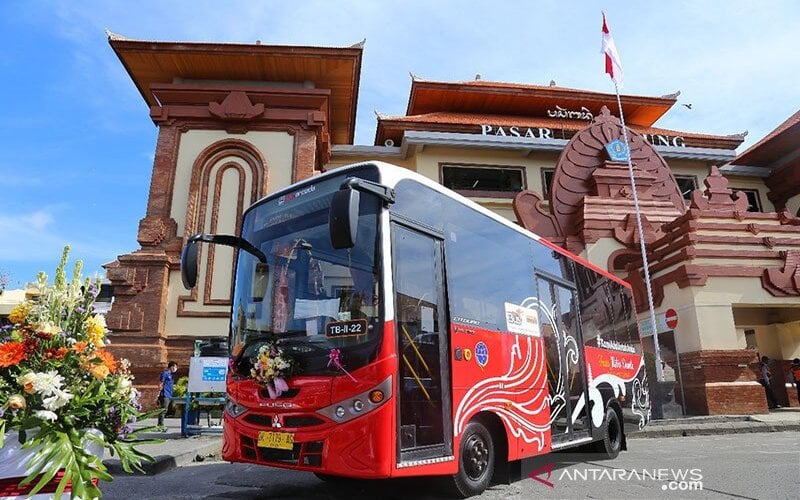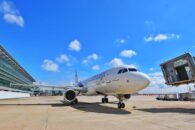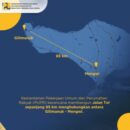TRIBUN-BALI.COM reports that the Trans Metro Dewata System (TMD) is widely rumored to be facing possible closure in 2025.
TMD has operated in Bali since 07 September 2020, serving Bali’s Denpasar, Badung, Ginyar, and Tabanan (Sarbagita) regions.
The Bus System was provided under the auspices of the Ministry of Transportation via the Directorate General of Land Transportation. Known as the BTS Teman Bus Program, Bali is the third urban mass transit program orchestrated by the Ministry of Transportation after Palembang and Surakarta.
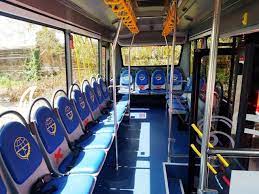
Although often cited for lacking passengers, the TMD System carries thousands of paying passengers daily. During 2020-2023, passenger numbers were calculated using remote surveillance cameras mounted at each bus’s entrance. However, in 2024, passenger numbers were more accurately calculated based on payment depots and QRIS scanning devices.
Ida Bagus Eka Budi, the Manager of PT. Satria Trans Jaya, the official operator of TMD, said passenger numbers traveling on TMD in 2024 declined when compared to 2023.
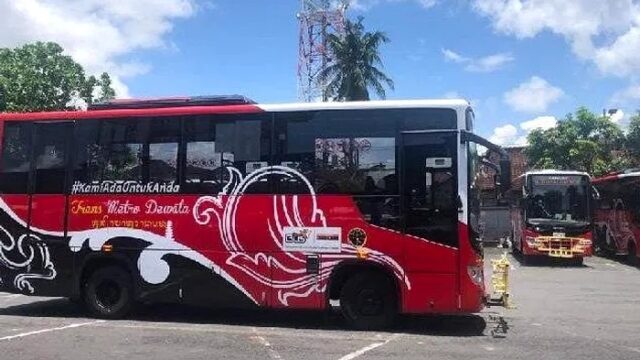
Eka admitted that the equipment and infrastructure of TMD are lacking. Eka elaborated: “Users do not feel safe and comfortable, that there are no feeder lines could be a reason for the eroding numbers of passengers.”
The number of passengers using TMD in 2023 was 2,074,339 people, and in 2024 it was 1,701,148 people.
While the average number of passengers using the bus system per day was:
- 1,531 passengers per day in 2020
- 5,193 passengers per day in 2021
- 6,586 passengers per day in 2022.
- 5,714 passengers per day in 2023
- 5,109 passengers per day in 2024
Eka Budi said the transportation system is communicating with the Bali Provincial Government and Ministry of Transportation to seek solutions to allow the bus system to continue to operate in 2025.
Eka warned that traffic congestion will worsen if the Bali urban bus system no longer operates in Bali. Adding: “It is certain that Trans Metro Dewata bus users will switch to using private vehicles,” he explained.
Eka Budi has identified specific improvements needed to improve Bali’s urban bus system:
- Creation of bus stops that are both safe and comfortable.
- Establishment of “feeder lines” that will bring passengers from outlying areas to connect with the main bus routes.
- TMB needs to allocate stocks of sufficient diesel fuel to prevent wasted time and energy now lost in the search for fuel.
- Better traffic control and management by the Provincial Government to prevent traffic jams and gridlock.
The bus fare levied by TMB starts from Rp. 2,0000. The TMB System operates over six routes.
The current tariff for passengers traveling on TMD has been in effect since 31 October 2023.
Using electronic “cashless” payment systems, passengers now pay a regular tariff of Rp. 4,000 or a “special tariff” of Rp. 2,000 reserved for students, college students, the elderly, and the disabled.
There is also an integrated fare system for passengers connecting on multiple buses. If a “second tap” of the electronic payment card takes place less than 90 minutes after the “first tap,” the second tap is free of charge.
Because the TMD bus system operates at a financial loss, operations are subsidized by the State Budget. “Until now, the Trans Metro Dewata bus service gets funding from the APBN. We operate under a contract with the Ministry of Transportation, and the Ministry of Transportation subsidizes the BTS service,” said Eka Budi.
Electric Busses Expected to Arrive in 2025
The Global Green Growth Institute (GGGI) , working through the State Planning Agency (Bappenas) and the Directorate General of Land Transportation, has donated 10 electric buses for use in Bali.
This electric bus fleet will operate in the Sarbagita Region, which includes Denpasar, Badung, Gianyar, and Tabanan.
The new buses are expected to arrive in Bali at the end of 2025. After the procurement and trial test process, the buses will start operating in 2026.
The Head of the Bali Provincial Transportation Agency, IGW Samsi Gunarta, commented: “In the future, we will add 10 more units with electric buses. Hopefully, we can improve the performance of the service.”
Samsi revealed that since its launch in 2011, the number of Trans Sarbagita fleet has decreased drastically. “Initially, there were 45 units, now there are only 10 units,” he said.
This decrease was due to the bus’s service fleet life ending without any replacement vehicles for the dwindling fleet.
Currently, only two corridors are served: the Batubulan-GOR Ngurah Rai route and the GOR Ngurah Rai-Garuda Wisnu Kencana (GWK) route.
The remaining buses serve students and universities, such as Udayana University, traveling from central to Jimbaran.
“We must improve the service, so Sarbagita’s service is too narrow now, and there are few buses. There are only 10 units left,” said Samsi.
A study is currently being conducted to determine the optimal additional route and specifications of the electric bus, including their size and capacity.
Good planning remains an obstacle. “The provincial government cannot suddenly change this situation, it must prepare budget allocations, prepare the necessary human resources, prepare equipment and control devices, and so on. So it is not easy to move it all at once,” Samsi explained.
If the process goes according to plan, the electric bus grant is estimated to be available by the end of 2025 and will start operating in 2026.
Related Links
S. Korea to Create Electric Busses for Bali
When in Bali, Take the Public Bus!
Bali Gets Electric Busses Post G20
Electric Bus System Launched in Bali
Stay Informed on Bali Tourism-Related News: Subscribe to Bali Update

